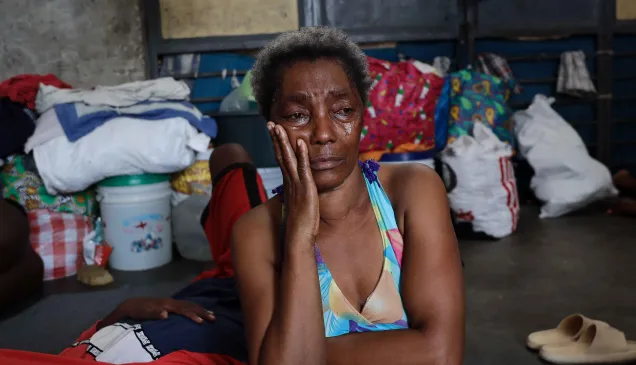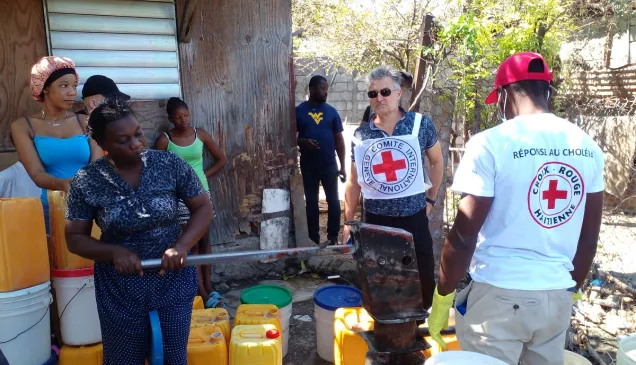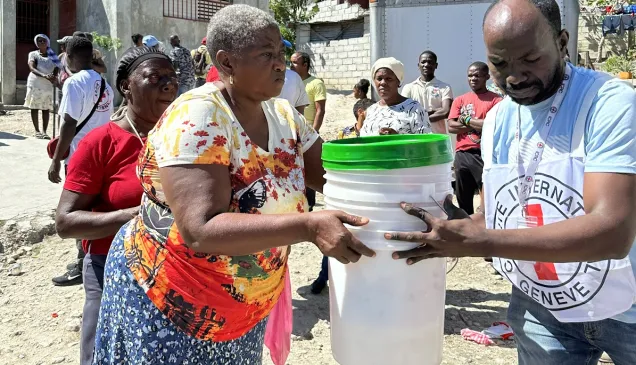Haiti: making impossible choices in a health-care system on the verge of collapse
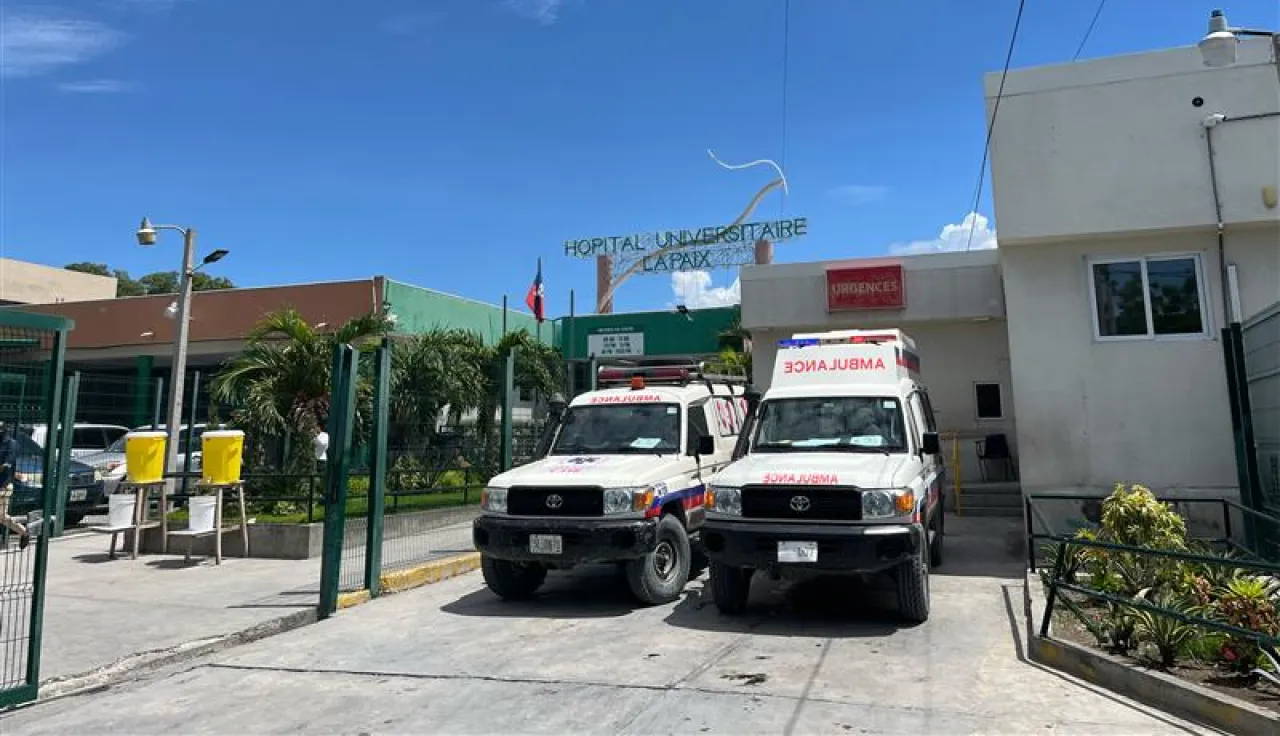
The intensification of armed clashes in Port-au-Prince has forced at least 70% of health-care facilities to close. Those that are still operational are seeing an influx of twice as many patients as before, mainly those with gunshot wounds, victims of sexual violence and severely malnourished displaced people with no access to essential services.
As armed clashes between the Viv Ansanm coalition of armed groups and government forces increase in the capital, the glaring lack of resources and staff is forcing Port-au-Prince's health-care workers to make impossible choices. Many health-care facilities have been looted or set on fire, and the few remaining ones are seeing an influx of twice as many patients as before. Overloaded emergency services are operating at breaking point. Wounded people, victims of sexual violence and displaced people suffering from malnutrition are among the most common patients.
"The entire health-care chain is disintegrating," laments Amélie Chbat, head of ICRC operations in Haiti.
This dramatic situation is illustrated at Hôpital Universitaire La Paix (HUP), the only major public hospital still operating in Port-au-Prince. Shortages of medicines, beds and staff, combined with the massive influx of wounded and injured people, are forcing doctors to decide who can be treated immediately and who will have to wait — at the risk of losing lives.
"Every day, the operating theatres are at full capacity. We have to prioritize certain critical cases and postpone others, sometimes at the cost of human lives," explains Dr Jean-Philippe Lerbourg, Medical Director at HUP. "More than 400 patients are waiting for an operation, on a list that can be several months long. These are not the kinds of choices that should have to be made in a hospital," he stresses.
Since 2024, HUP has seen admissions double across all departments. Emergency departments, which used to see between 800 and 1,200 patients a month, are now seeing up to 2,000. "They come from all over the metropolitan area and include gunshot victims, victims of sexual violence and displaced people. Our team is at the end of its tether," adds Dr Lerbourg.
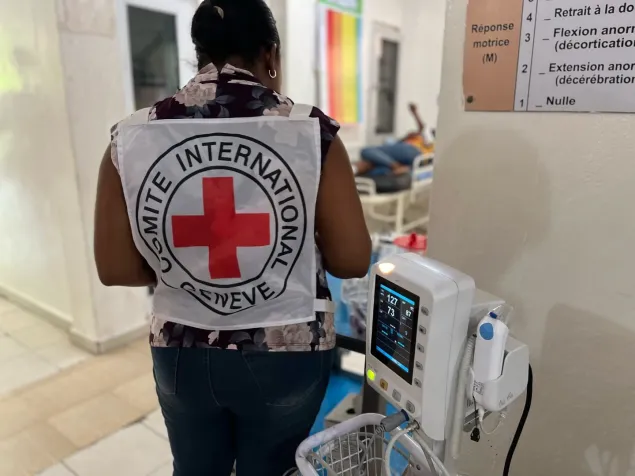
An ICRC employee visits Saint Camille Hospital to assess medical needs and strengthen humanitarian cooperation.
An urgent appeal to safeguard and protect health-care services
In Haiti, armed violence not only causes loss of life, it also directly attacks hospitals, clinics and health-care workers, depriving millions of people of their fundamental right to health. Every attack on a medical facility deprives the wounded of a chance of survival and makes access to care ever more difficult.
In February 2024, and again in February 2025, the attack and fire at the Hôpital Universitaire d'État d'Haiti (HUEH), the country's largest hospital, marked the start of a series of attacks on medical infrastructure. Since then, 70% of the capital's public health facilities have closed, depriving 4.4 million people of access to health care according to the WHO, and leading to a dramatic humanitarian crisis.
"We insist that health-care services be safeguarded and protected in all circumstances and by all carriers of arms," stresses Amélie Chbat. "Guaranteeing humanitarian access to affected populations, as well as unhindered access to health care for these populations, remains a vital priority."
The ICRC's action
In the face of this health catastrophe, the ICRC is deploying an emergency response to support public facilities that remain operational, supplying them with essential medicines and specialized materials for the treatment of wounded patients, delivering fuel and equipment to keep facilities running and providing direct financial support to these establishments to guarantee continuity of services.
At the same time, mobile clinics have been set up in partnership with the NGO Alima at sites hosting displaced people, offering basic health care to around 50,000 people. This flexible approach allows the aid to be adapted to the changing realities in the field.
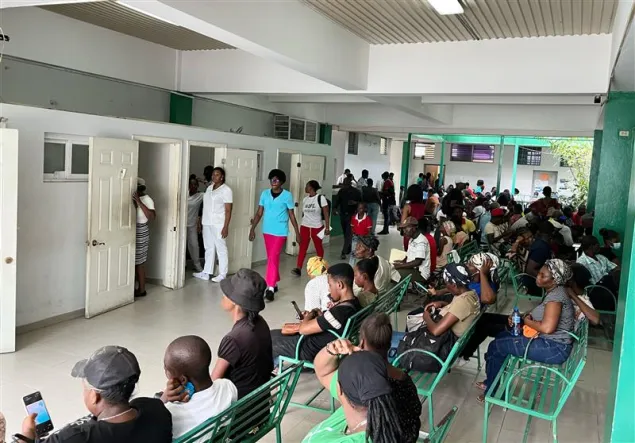
Influx of patients in the emergency room at La Paix University Hospital (HUP).
Results from January to September 2025
1. Direct medical support
- 5 hospitals in Port-au-Prince, equipped with essential medicines, first-aid kits and financial support, admitted and treated 20,207 patients, including 6,077 gunshot victims.
- Support for MSF to treat more than 400 gunshot victims
- 4 health-care centers supported in critical areas, covering nearly 148,000 people
2. Strengthening operational continuity
- 11,000 liters of fuel supplied to Hôpital Universitaire La Paix
- 880 kg of chlorine distributed to combat cholera
- Refurbishment of 3 health-care facilities (electricity and water)
- Mobile clinics deployed for nearly 50,000 displaced people (partnership with Alima)
3. Evacuation of casualties and prehospital care
- 4,198 injured or ill people benefited from the First Aid/Pre-hospital Emergency Care program
- 298 people trained in first aid, including weapons carriers
- Repair of the CAN and CRH ambulance fleets and fuel support
- Support for bonus payments to medical staff during peaks of violence
- "Caring for Caregivers" program: psychological support for caregivers
- Training for community relays to evacuate the wounded when ambulances cannot reach them
- 6 stabilization points set up to stabilize the wounded before evacuation
4. Mental health and psychological support
- 2,532 calls were received for psychosocial assistance (referrals) and 1,345 sessions were organized by a local psychological support organization (CIPUH) supported by the ICRC.

